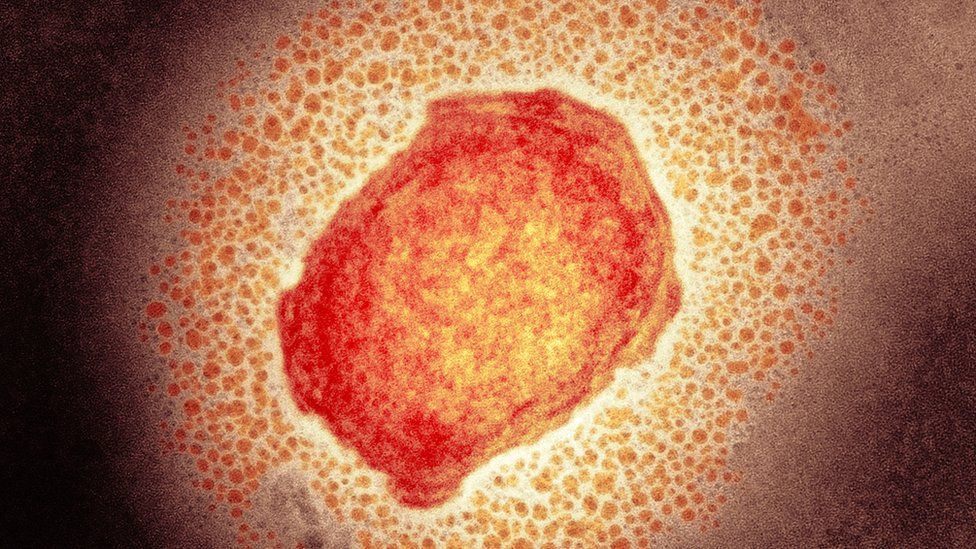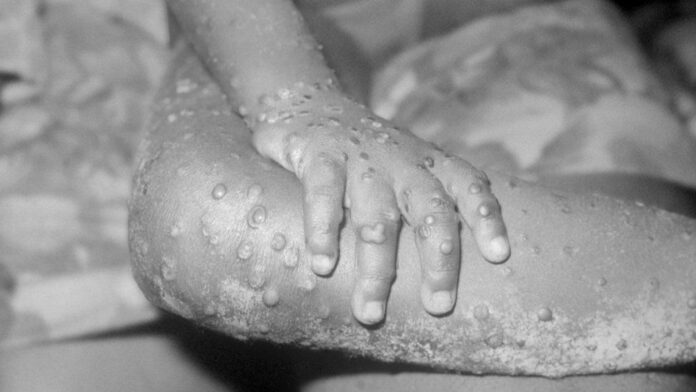Cases of Monkeypox are being investigated in European countries as well as the US, Canada, Australia and the UK, according to health authorities and local media reports.
The latest new cases were reported in France, Italy, Sweden and Australia.
It follows the confirmation of cases in the US, Spain and Portugal on Wednesday, as well as the investigation of 13 suspected cases in Canada, reports BBC.
Monkeypox is most common in remote parts of Central and West Africa. Cases of the disease outside of the region are often linked to travel to the area.
Monkeypox is a rare viral infection which is usually mild and from which most people recover in a few weeks, according to the UK’s National Health Service.
The first case of the disease in the UK was reported on 7 May. The patient had recently travelled to Nigeria, where they are believed to have caught the virus before travelling to England, the UK Health Security Agency said.
There are now nine confirmed cases in the UK. The source of these infections has not yet been confirmed but cases seem to have been “locally acquired”, the World Health Organization (WHO) says.
Australia on Friday reported its first suspected case, in a man who fell ill after returning from travel in Europe.
In Europe, one confirmed case was reported in Sweden on Thursday, as well as one in Italy and a suspected case in France. Swedish authorities said they were not sure how the individual had contracted the virus, but local media report that the individual in Italy had recently returned from the Canary Islands.
The virus does not spread easily between people and the risk to the wider public is said to be very low. Five confirmed cases were also reported in Portugal on Wednesday, as well as seven in Spain.
Though no vaccine has been approved for Monkeypox in Europe, Spanish health authorities have reportedly purchased thousands of smallpox vaccines to deal with the outbreak, according to Spanish newspaper El País. Monkeypox is a member of the same family of viruses as smallpox.
In North America, health authorities in the US state of Massachusetts also confirmed that a man has been infected with Monkeypox.
He had recently travelled to Canada, where local media report that 13 suspected cases of the virus are being investigated.
According to health officials, the man has been hospitalised, is in “good condition” and “poses no risk to the public”.
What is monkeypox?
Monkeypox is caused by the monkeypox virus, a member of the same family of viruses as smallpox, although it is much less severe and experts say chances of infection are low.
It occurs mostly in remote parts of central and west African countries, near tropical rainforests. There are two main strains of virus – west African and central African.
Two of the infected patients in the UK travelled from Nigeria, so it is likely that they are suffering from the West African strain of the virus, which is generally mild, but this is as yet unconfirmed. The third case was a healthcare worker who picked up the virus from one of the patients.
The four most recent cases – three in London and one in north-east England – do not have any known links with each other, or any history of travel. It appears they caught it in the UK.
The UKHSA says anyone with concerns that they could be infected should see a health professional, but make contact with the clinic or surgery ahead of a visit.
What are the symptoms?
Initial symptoms include fever, headaches, swellings, back pain, aching muscles and a general listlessness.
Once the fever breaks a rash can develop, often beginning on the face, then spreading to other parts of the body, most commonly the palms of the hands and soles of the feet.
The rash, which can be extremely itchy, changes and goes through different stages before finally forming a scab, which later falls off. The lesions can cause scarring. The infection usually clears up on its own and lasts between 14 and 21 days.
How do you catch it?
Monkeypox can be spread when someone is in close contact with an infected person. The virus can enter the body through broken skin, the respiratory tract or through the eyes, nose or mouth.
It has not previously been described as a sexually transmitted infection, but it can be passed on by direct contact during sex.
It can also be spread by contact with infected animals such as monkeys, rats and squirrels, or by virus-contaminated objects, such as bedding and clothing.
How dangerous is it?
Most cases of the virus are mild, sometimes resembling chickenpox, and clear up on their own within a few weeks.
Monkeypox can sometimes be more severe, however, and has been reported to have caused deaths in west Africa.
How common are outbreaks?
The virus was first identified in a captive monkey and since 1970 there have been sporadic outbreaks reported across 10 African countries.
In 2003 there was an outbreak in the USA, the first time the disease had been seen outside of Africa. Patients caught the disease from close contact with prairie dogs that had been infected by a variety of small mammals imported into the country. A total of 81 cases were reported, but none resulted in deaths.
In 2017, Nigeria experienced the largest documented outbreak, approximately 40 years after the country had its last confirmed cases of monkeypox. There were 172 suspected cases of monkeypox, and 75% of victims were males aged between 21 and 40 years old.
What is the treatment?
There is no treatment for monkeypox, but outbreaks can be controlled by infection prevention.
Vaccination against smallpox has been proven to be 85% effective in preventing monkeypox, and is still sometimes used.
Should the public be concerned?
Experts say we are not on the brink of a national outbreak and, according to Public Health England, the risk to the public is low.
Prof Jonathan Ball, professor of molecular virology, University of Nottingham, said: “The fact that only one of the 50 contacts of the initial monkeypox-infected patient has been infected shows how poorly infectious the virus is.
“It is wrong to think that we are on the brink of a nationwide outbreak.”
Dr Nick Phin, deputy director, National Infection Service at Public Health England (PHE), added: “It is important to emphasise that monkeypox does not spread easily between people and the overall risk to the general public is very low.”
PHE is following up those who have had close contact with the patient to offer advice and to monitor them as necessary.”





























